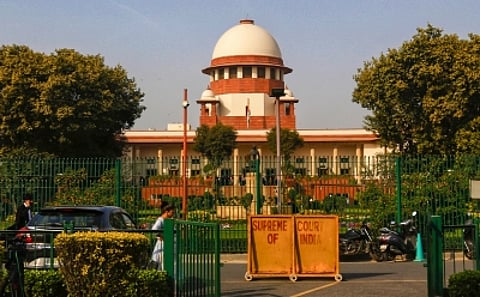
New Delhi – The Supreme Court of India has quashed a Bihar government notification that merged the Tanti caste, previously categorized under Other Backward Classes (OBC), with the Scheduled Castes (SC) list. The judgment, delivered by a bench led by Justice Pamidighantam Narasimha, sets a precedent against state-level alterations to the constitutionally mandated SC lists without parliamentary approval.
The case arose when Rohit Nandan, a postal assistant appointed under the OBC category in 1997, sought to benefit from his caste’s reclassification as SC following a 2015 notification by the Bihar government. The gazette notification had removed the Tanti caste from the OBC list and merged it with the Pan/Swasi caste in the SC list.
Based on this change, Nandan obtained an SC certificate and applied for a change in his service record, as well as for promotion under the SC category. While initially declared successful in a Limited Departmental Competitive Examination (LDCE) for a promotion, his candidature was subsequently withheld. The Department of Posts ultimately deemed him ineligible for SC benefits, prompting Nandan to approach the judiciary.
The Central Administrative Tribunal (CAT) dismissed Nandan’s plea in 2022, but the Patna High Court later overturned this decision, leading to an appeal by the Union of India in the Supreme Court.
The apex court’s decision hinged on its earlier ruling in Dr. Bhim Rao Ambedkar Vichar Manch Bihar v. State of Bihar (2024), which declared that state governments lack the authority to modify the SC and ST lists established under Article 341 of the Constitution. Justice Narasimha observed:
Illegality of State Actions:
The Bihar government’s 2015 notification was deemed a “patently illegal” attempt to alter the SC list, a power reserved exclusively for Parliament.
The state’s claim that the notification was merely clarificatory was outrightly rejected. Justice Narasimha noted that any inclusion or exclusion from the SC list must be enacted through a parliamentary law, as mandated by Article 341.
Mala Fide Intent:
The court described the state’s actions as a “mala fide exercise,” highlighting that the Bihar government proceeded with the notification despite being aware of its lack of jurisdiction. It pointed to the state’s earlier request to the Union government for approval, which had been returned for reconsideration.
Impact on SC Representation:
The court emphasized the harm caused to legitimate SC communities, noting that wrongful inclusion of castes not covered by the constitutional list diluted the rights of genuine SC beneficiaries.
Protection for Beneficiaries
While declaring the notification illegal, the court adopted a pragmatic approach to those who had already benefited under the SC category. Referencing Dr. Bhim Rao Ambedkar (2024), the judgment stated:
Services or benefits granted under the now-invalid notification would not be revoked, provided such beneficiaries were accommodated under their original OBC or EBC categories.
Posts occupied under the SC quota by Tanti caste members were directed to be returned to the SC pool.
Applying the principles of the Dr. Bhim Rao Ambedkar judgment, the Supreme Court concluded that:
Nandan could not claim SC benefits as the Tanti caste’s inclusion in the SC list was unlawful.
His promotion under the SC category was invalid, and his status would revert to his original OBC classification.
The SC verdict reaffirms that any changes to the SC or ST lists must undergo due legislative process, ensuring the protection of marginalized communities' rights. For states, the judgment serves as a stern reminder against unilateral actions that contravene constitutional mandates.
- Author Maria Paliwala is Chief Editor at Juris Hour.
You can also join our WhatsApp group to get premium and selected news of The Mooknayak on WhatsApp. Click here to join the WhatsApp group.